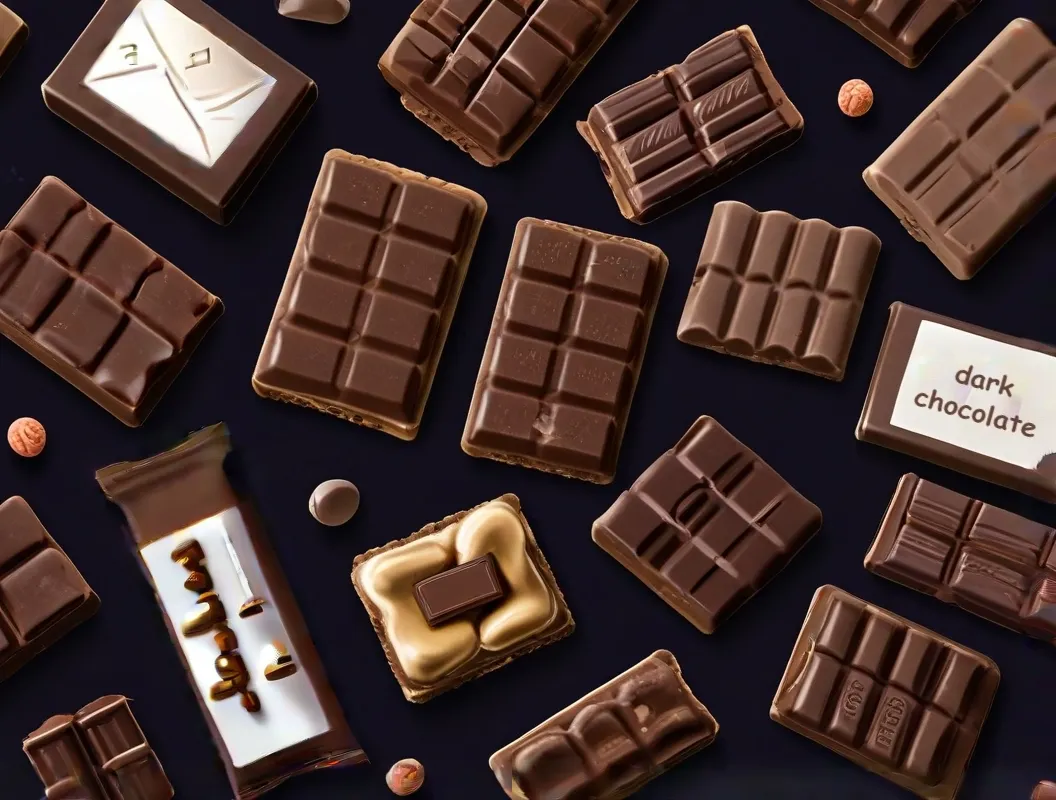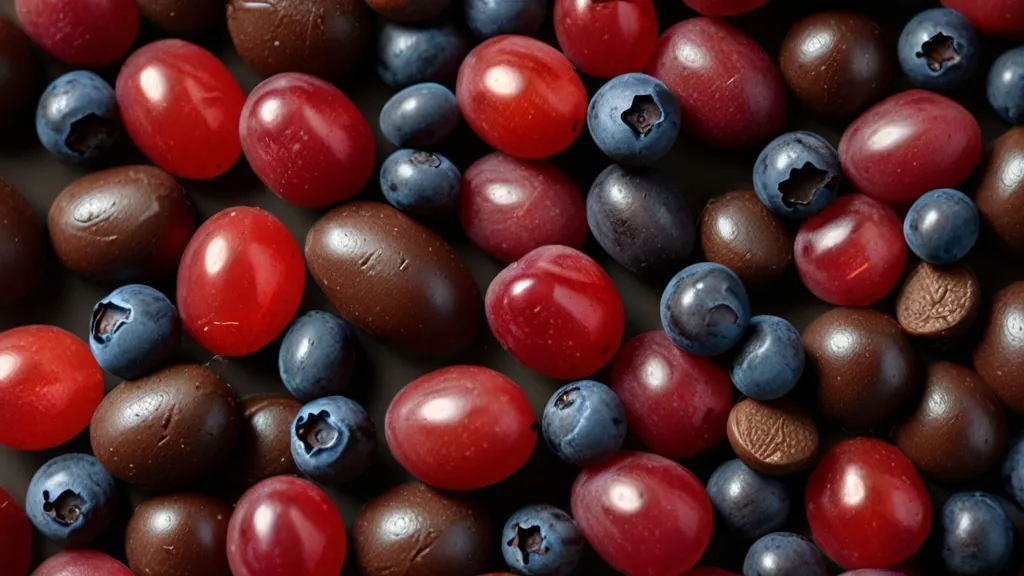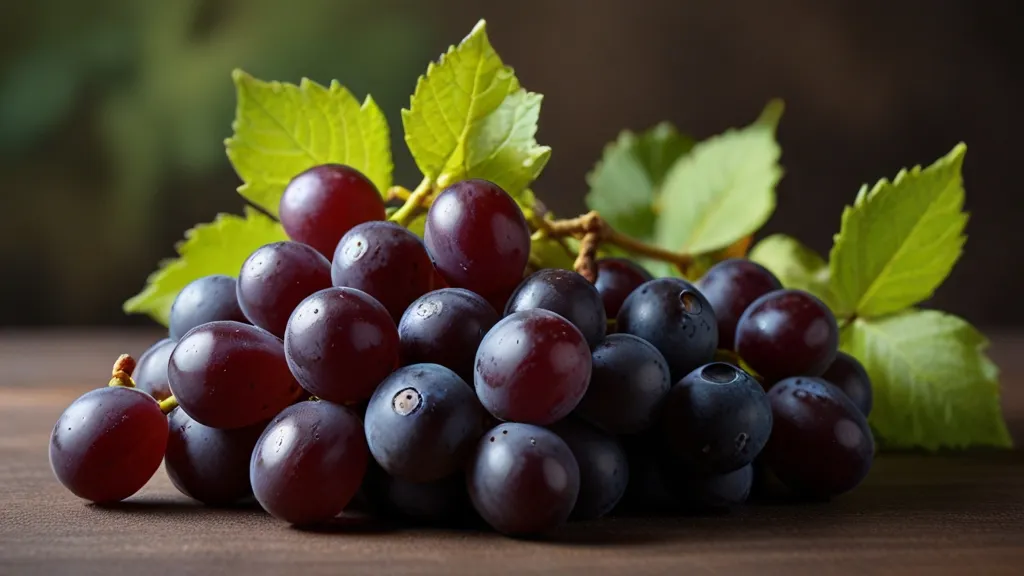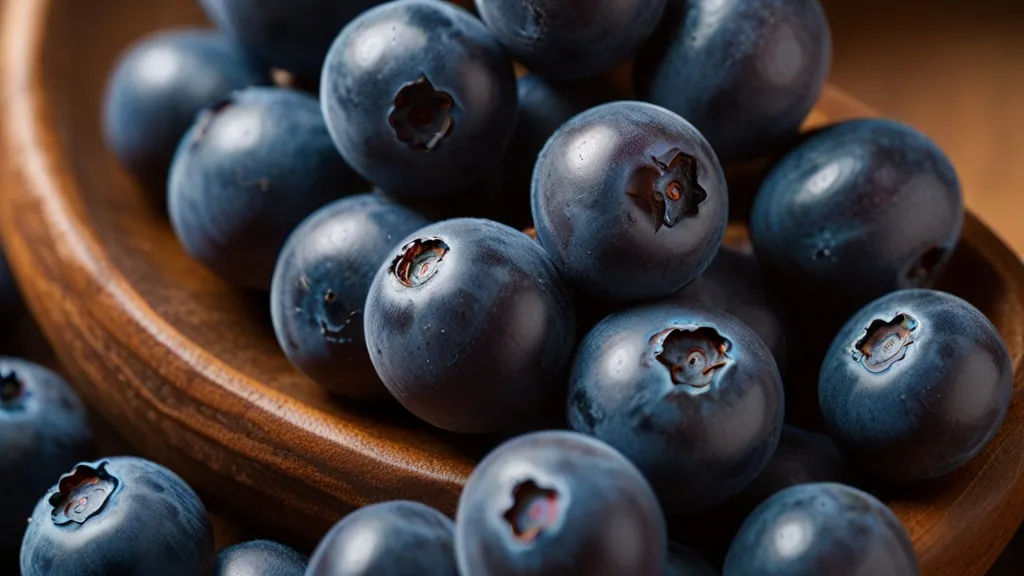Can Resveratrol-rich Foods Delay Cognitive Decline And Support Brain Longevity?

Can Resveratrol-rich Foods Delay Cognitive Decline And Support Brain Longevity?
Cognitive decline is a natural part of aging, but for many, the fear of losing mental faculties is a significant concern. One potential ally in the fight against cognitive decline is resveratrol, a powerful antioxidant found in certain foods. Studies have shown that resveratrol may have neuroprotective effects, supporting brain health and potentially delaying the onset of conditions like Alzheimer's disease.
Including resveratrol-rich foods in your diet could be a delicious and proactive way to support brain longevity and overall cognitive function.
Key Takeaways:
- Resveratrol-rich Foods: Consuming foods high in resveratrol, such as red grapes, blueberries, and dark chocolate, may have neuroprotective effects.
- Cognitive Decline: Studies suggest that resveratrol may help delay cognitive decline and improve brain function, especially in older adults.
- Antioxidant Properties: Resveratrol is known for its antioxidant properties, which can help combat oxidative stress and inflammation in the brain.
- Brain Longevity: Including resveratrol-rich foods in your diet may support brain longevity and reduce the risk of age-related cognitive disorders.
- Overall Health Benefits: In addition to brain health, resveratrol has been linked to various other health benefits, such as heart health and anti-aging effects.
Understanding Resveratrol
What is Resveratrol?
Any discussion on resveratrol usually brings up its association with red wine, but the compound is actually a type of natural phenol produced by several plants in response to injury or when under attack by pathogens such as bacteria or fungi. Resveratrol is known for its antioxidant properties, which can help protect the body against damage caused by free radicals.
Sources of Resveratrol in Our Diet
The consumption of resveratrol is not limited to red wine; it can also be found in various foods. Some common food sources of resveratrol include red grapes, blueberries, cranberries, and peanuts. It is also present in cocoa and dark chocolate. Including a variety of these foods in your diet can contribute to your resveratrol intake.
Sources of resveratrol in our diet are not only delicious but can also bring potential health benefits to our bodies. Adding these foods to your meals can be a tasty way to support your brain health and overall well-being.
The Science Behind Resveratrol and Brain Health
Exploring the Research: What We Know So Far
While the link between resveratrol-rich foods and brain health is a relatively new area of study, researchers have made significant progress in understanding the potential benefits. Studies have shown that resveratrol, a powerful antioxidant found in foods like red wine, grapes, and berries, may have neuroprotective effects that could help delay cognitive decline and support brain longevity.
Mechanisms of Action: How Resveratrol May Benefit the Brain
With ongoing research in this field, scientists are unraveling the mechanisms of action by which resveratrol may benefit the brain. Some studies suggest that resveratrol may help reduce inflammation, promote the growth of new brain cells, and protect neurons from damage, all of which are vital for maintaining cognitive function and overall brain health.
Science: Resveratrol has shown promise in animal studies for its potential to enhance memory and cognitive function, leading researchers to further investigate its effects in humans. While more research is needed to fully understand the impact of resveratrol on brain health, early findings are encouraging.
Health: Incorporating resveratrol-rich foods into your diet, such as red grapes, blueberries, and dark chocolate, may offer a natural way to support your brain health and potentially delay cognitive decline. However, it's vital to remember that moderation is key and that a balanced diet rich in a variety of nutrients is crucial for overall well-being.

Resveratrol-rich Foods and Cognitive Function
Once again, the potential benefits of resveratrol-rich foods on cognitive function are being explored. Resveratrol is a natural compound found in various foods like grapes, berries, and peanuts, known for its antioxidant and anti-inflammatory properties.
The Potential Role in Slowing Cognitive Decline
Cognitive decline is a normal part of aging, but research suggests that resveratrol may help slow down this process. Studies have shown that resveratrol can enhance memory and learning abilities, protect neurons from damage, and reduce the risk of neurodegenerative diseases like Alzheimer's.
Diet Tips: Integrating Resveratrol-rich Foods into Daily Meals
Slowing cognitive decline and supporting brain health can be as simple as incorporating more resveratrol-rich foods into your daily meals. Here are some easy ways to do so:
- Include berries like blueberries, strawberries, and raspberries in your breakfast smoothie or yogurt parfait.
- Snack on grapes or raisins throughout the day for a sweet and nutritious treat.
- Add peanuts or natural peanut butter to your salads, stir-fries, or sandwiches for an extra crunch and resveratrol boost.
Recognizing the importance of a balanced diet rich in resveratrol is key to maintaining cognitive function and brain longevity. By making small but consistent changes to your eating habits, you can support your brain health and potentially delay cognitive decline.
Lifestyle and Cognitive Health
After exploring the benefits of resveratrol-rich foods for cognitive health, it's important to consider the bigger picture when it comes to maintaining brain function as we age.
The Bigger Picture: Diet and Other Lifestyle Factors
Cognitive health is not just about one specific nutrient or food group. Diet, exercise, sleep, and mental stimulation all play crucial roles in supporting brain longevity. Maintaining a balanced diet rich in antioxidants, vitamins, and minerals, along with regular physical activity, quality sleep, and engaging cognitive activities, can all contribute to overall cognitive well-being. The key is to adopt a holistic approach that addresses multiple aspects of lifestyle to support optimal brain function as we age.
The interplay between various lifestyle factors can have a profound impact on cognitive health. By focusing on healthy habits across different areas of life, individuals can potentially enhance their brain longevity and reduce the risk of cognitive decline.
Synergistic Effects: Combining Resveratrol Intake with Other Healthy Habits
Healthy lifestyle habits, when combined with resveratrol intake, can potentially yield synergistic effects that benefit cognitive health in the long run. Exercise, for example, has been shown to complement the neuroprotective effects of resveratrol, while a balanced diet rich in antioxidants can further enhance its benefits.
Other positive lifestyle choices such as meditation, stress management, and social engagement can also contribute to overall brain health when combined with resveratrol-rich foods. By adopting a comprehensive approach that includes multiple healthy habits, individuals may be able to synergistically support their cognitive function and potentially delay cognitive decline as they age.

Challenges and Considerations
Keep in mind that while resveratrol shows promise in supporting brain health and cognitive function, there are several challenges and considerations to take into account when interpreting the current body of research.
Limitations of Current Studies on Resveratrol
Challenges in the current studies on resveratrol include varying dosages used, different forms of resveratrol supplements, and the duration of the studies. This makes it difficult to draw definitive conclusions about the effectiveness of resveratrol in preventing cognitive decline. Additionally, many studies have been conducted on animals, with limited human trials, making it challenging to apply the findings directly to human health.
Adapting to Individual Needs and Responses to Resveratrol
Challenges in adapting to individual needs and responses to resveratrol include factors such as age, gender, genetics, and overall health. An individual's response to resveratrol may vary based on these factors, making it important to consider personalized approaches to dosing and supplementation.
For instance, individuals with certain genetic variations may metabolize resveratrol differently, impacting its effectiveness in supporting brain health. It is crucial to work with healthcare professionals to determine the most appropriate dosage and form of resveratrol based on individual needs and responses.
Beyond Resveratrol: Other Nutrients for Brain Longevity
Your Resveratrol | Linus Pauling Institute | Oregon State University intake is crucial for supporting brain health, but other nutrients play a crucial role too. Antioxidants and Omega-3 Fatty Acids are two important components that can contribute to cognitive longevity.
Antioxidants and Omega-3 Fatty Acids
Acids such as Omega-3 Fatty Acids are known for their anti-inflammatory properties, which can help protect the brain from oxidative stress. Foods rich in Omega-3s, like fatty fish, walnuts, and flaxseeds, can support brain function and potentially delay cognitive decline. Antioxidants, found in fruits, vegetables, and nuts, help combat free radicals that can damage brain cells. Including a variety of colorful plant-based foods in your diet can provide a wide array of antioxidants that support overall brain health.
Holistic Dietary Approaches for Cognitive Health
Beyond individual nutrients, holistic dietary approaches for cognitive health focus on the synergy of nutrients working together to support brain function. Emphasizing a diet rich in whole foods, including fruits, vegetables, whole grains, lean proteins, and healthy fats, can provide a range of nutrients that promote cognitive function. Eating a diverse and balanced diet not only nourishes the body but also supports mental clarity and sharpness as we age.
Approaches that prioritize nutrient-dense foods and limit processed and sugary items can have a significant impact on brain health. Additionally, staying hydrated, engaging in regular physical activity, and managing stress levels are important components of a holistic approach to supporting cognitive function. By taking a comprehensive approach to your diet and lifestyle, you can positively impact your brain longevity and overall well-being.

To wrap up
Conclusively, while further research is needed to fully understand the extent of resveratrol impact on cognitive decline and brain longevity, incorporating resveratrol-rich foods into your diet can potentially be beneficial for brain health. Foods like red grapes, blueberries, and dark chocolate not only taste great but also offer antioxidant properties that may help protect brain cells and support cognitive function.
By including these foods in your diet along with other brain-healthy habits such as regular exercise, adequate sleep, and mental stimulation, you can take proactive steps towards maintaining your brain health as you age. Whether it's a glass of red wine or a handful of blueberries, incorporating resveratrol-rich foods into your daily routine can potentially contribute to supporting your brain health and cognition in the long run.
FAQ
Q: What is resveratrol?
A: Resveratrol is a natural compound found in certain plants like grapes, blueberries, and peanuts. It is known for its antioxidant properties and potential health benefits.
Q: Can resveratrol-rich foods delay cognitive decline?
A: Some studies suggest that resveratrol may help in delaying cognitive decline by protecting brain cells from damage and reducing inflammation in the brain.
Q: How can resveratrol support brain longevity?
A: Resveratrol can support brain longevity by promoting healthy blood flow to the brain, reducing oxidative stress, and protecting nerve cells from age-related damage.
Q: What are some examples of resveratrol-rich foods?
A: Resveratrol-rich foods include red grapes, blueberries, cranberries, dark chocolate, and peanuts. Red wine is also a source of resveratrol.
Q: How much resveratrol should I consume to reap its benefits?
A: While there is no established recommended daily intake for resveratrol, incorporating a variety of resveratrol-rich foods in your diet can be beneficial for overall health and potential cognitive benefits.
